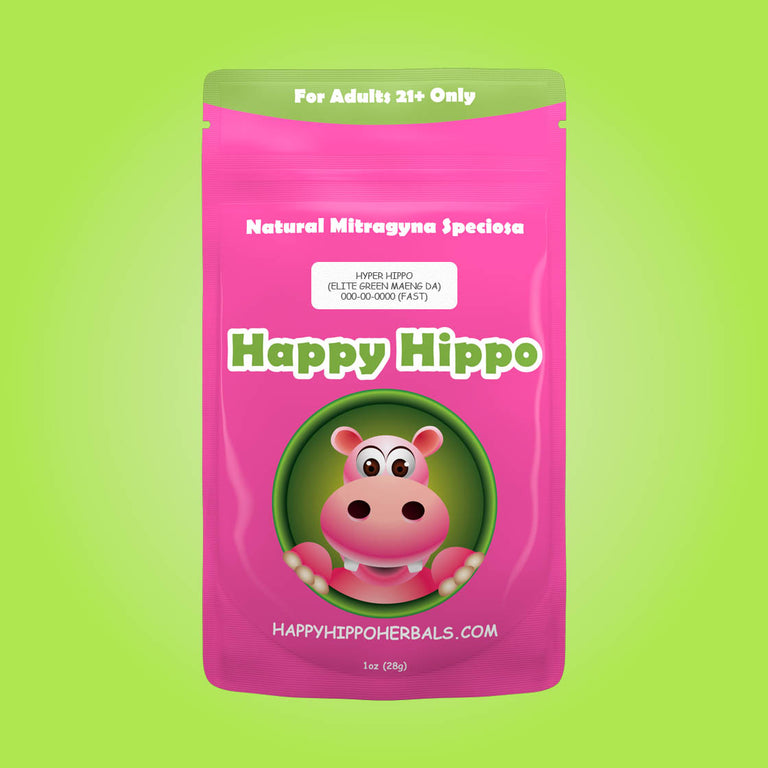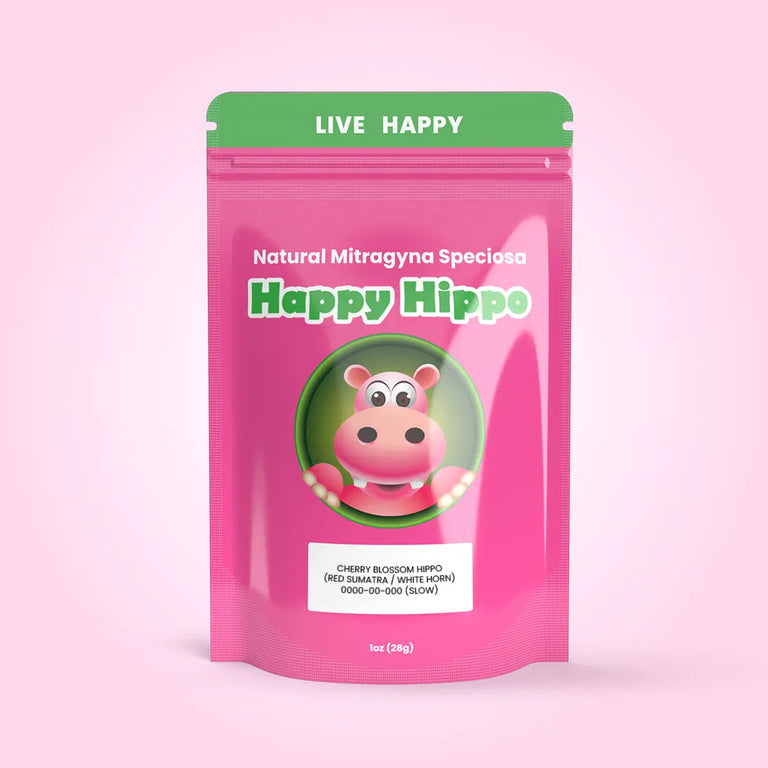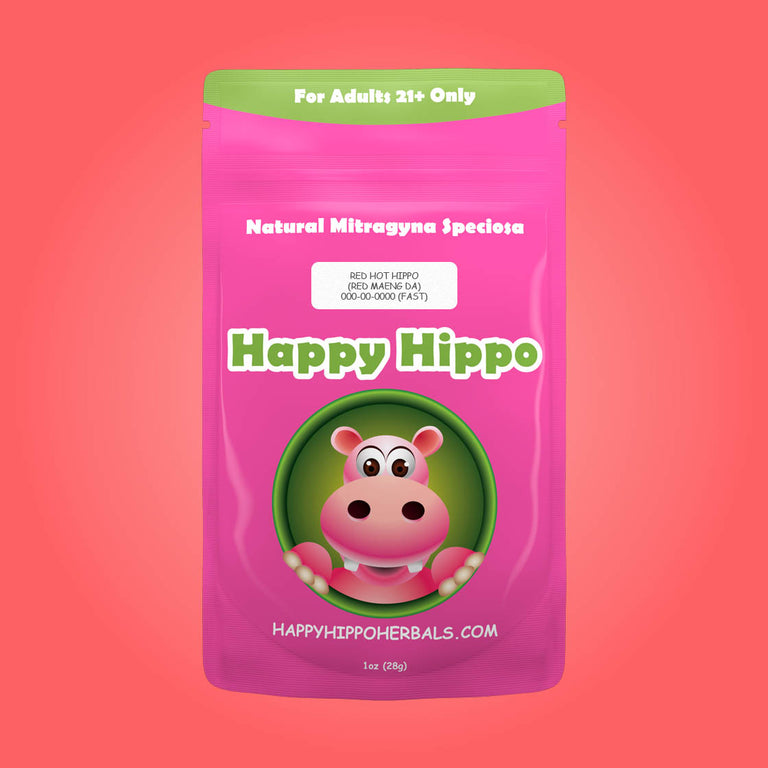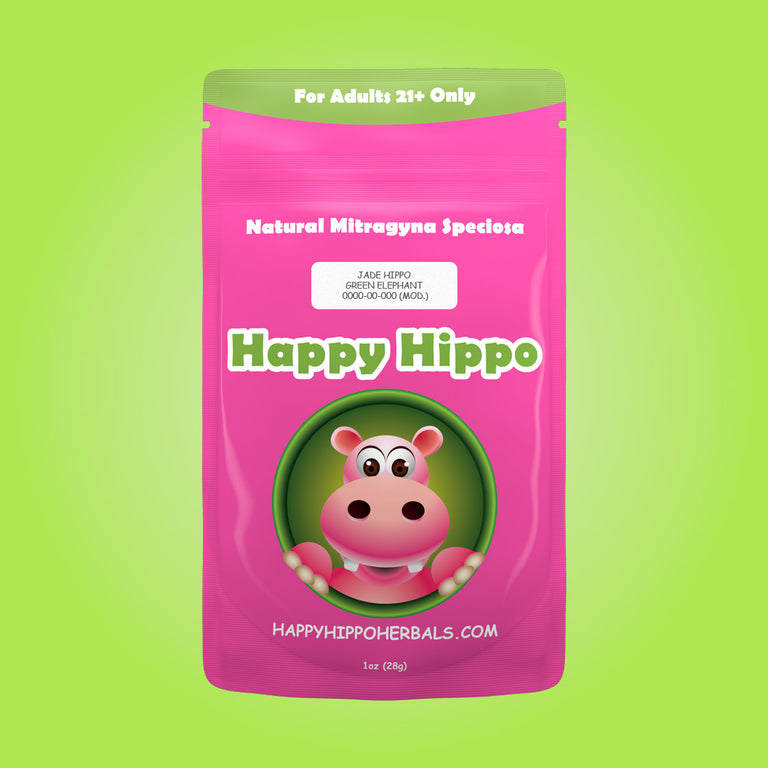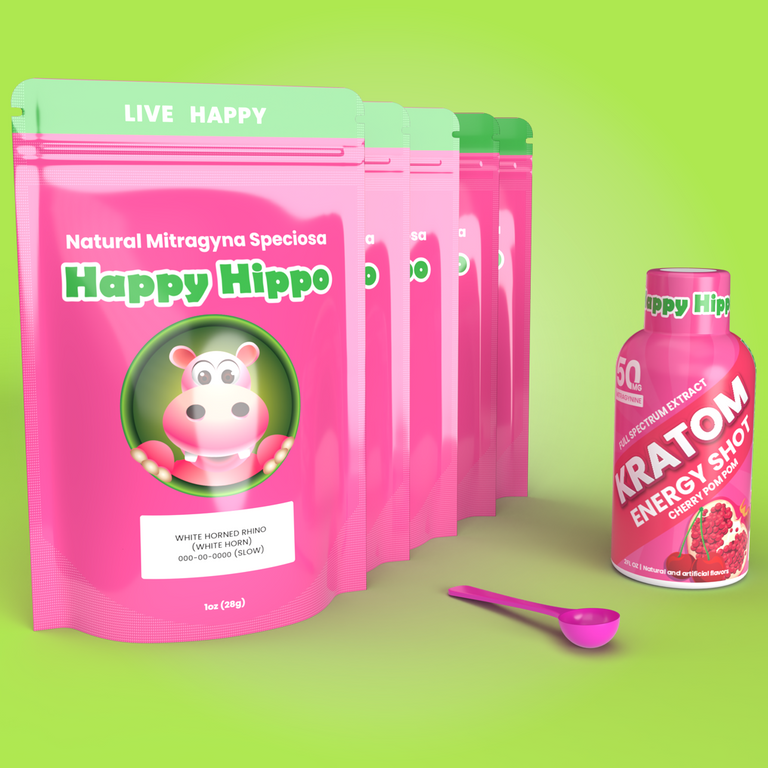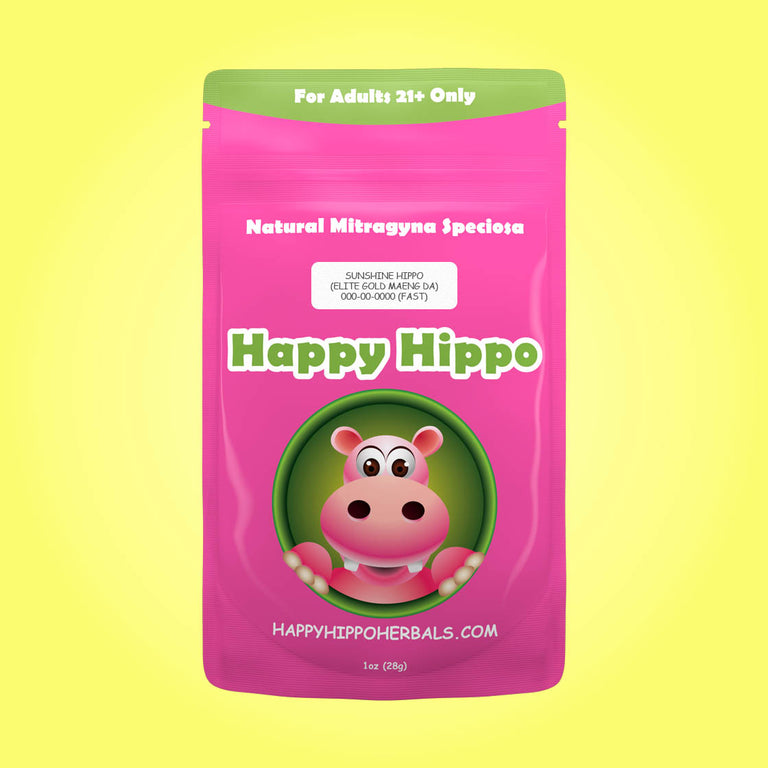Happy Hippo Herbals is an online vendor specializing in selling botanical products, particularly kratom, a tropical tree native to Southeast Asia. Kratom leaves have been traditionally used for their medicinal properties, including pain relief and mood enhancement.
Happy Hippo Herbals offers a variety of kratom strains in different forms, such as powder and capsules. They claim to source their products from reputable suppliers and prioritize quality and customer satisfaction.
It’s important to note that kratom is a controversial substance and its legality and safety vary depending on location. While some people use kratom for its potential benefits, others are concerned about its addictive potential and potential side effects. A few common FAQ’s on kratom are listed at the bottom of this article.
Kratom Strains at Happy Hippo?
Happy Hippo Herbals offers a variety of kratom strains in different forms, such as powder and capsules. They claim to source their products from reputable suppliers and prioritize quality and customer satisfaction
Listed here are a few of the best-sellers :
How to Save on Happy Hippo Products?
To save on every purchase at Happy Hippo, apply the exclusive code “CBDWELLNESS” at checkout. Additionally, you can save extra with new deals updated every Monday, Wednesday, and Saturday.
How to Reach Out Happy Hippo Customer Support
If you’re looking to contact Happy Hippo Herbals, you can likely find options such as email addresses, phone numbers, or a contact form on their contact page. You may also find additional information such as their physical address or operating hours
Happy Hippo Shipping Policy
- Order processing times : Orders are typically shipped within 24-48 hours of each business day, however, this may be longer during large sales, promotions, product releases, and holidays
- Tracking information : the tracking information typically does not update and will not show any information for up to 24-48 hours until the shipping provider has scanned your package.
- For more information on shipping policy visit privacy policy
FAQ’s on Kratom
What is Kratom?
Kratom, scientifically known as Mitragyna speciosa, is a tropical tree native to Southeast Asia, particularly Thailand, Malaysia, Indonesia, and Papua New Guinea. It belongs to the Rubiaceae family, which also includes coffee plants. Kratom leaves have been traditionally used for their stimulant, sedative, and analgesic effects by indigenous populations in Southeast Asia for centuries.
Kratom contains compounds called alkaloids, with the primary psychoactive alkaloids being mitragynine and 7-hydroxymitragynine. These alkaloids interact with opioid receptors in the brain, producing effects similar to opioids such as pain relief, relaxation, and euphoria. However, kratom’s mechanism of action differs from traditional opioids and is more complex, leading to a unique set of effects and potential risks.
Is Kratom Legal?
The legality of kratom varies depending on the country, region, and sometimes even at the state or local level within certain countries. Here’s a general overview:
- United States: Kratom is legal at the federal level in the United States, but several states and cities have banned its sale, possession, or use. As of my last update in January 2022, kratom is banned in Alabama, Arkansas, Indiana, Rhode Island, Vermont, and Wisconsin. Additionally, several cities and counties have implemented their own restrictions. It’s essential to check the specific laws in your state or locality if you’re in the U.S.
- Europe: The legal status of kratom varies across European countries. In some countries, such as the United Kingdom and Germany, kratom is legal for personal use but may be subject to restrictions or regulations. In other countries, such as Denmark and Sweden, kratom is banned.
- Asia: Kratom is illegal or heavily regulated in several Southeast Asian countries where it is native, such as Thailand, Malaysia, and Myanmar. In Indonesia, where kratom is also native, it is legal for traditional use but regulated for export.
- Other regions: The legality of kratom in other regions varies widely. Some countries have outright bans on kratom, while others may regulate it or have no specific laws regarding its use.
Is Kratom Opioid?
Kratom contains compounds that act on opioid receptors in the brain, leading to effects similar to opioids. However, it’s important to clarify that kratom itself is not classified as an opioid in the same way as drugs like heroin, morphine, or oxycodone.
The primary psychoactive alkaloids in kratom, mitragynine and 7-hydroxymitragynine, interact with opioid receptors, particularly the mu-opioid receptor, which is associated with pain relief and euphoria. This interaction is why kratom can produce opioid-like effects such as pain relief, relaxation, and mood enhancement
Kratom Dosage?
Determining the appropriate kratom dosage can depend on several factors, including individual tolerance, body weight, metabolism, and the specific strain of kratom being used. It’s essential to start with a low dose and gradually increase it until you achieve the desired effects while minimizing the risk of adverse reactions.
Here are some general guidelines for kratom dosage:
- Low dose: Typically ranges from 1 to 3 grams of kratom powder. Low doses may produce mild stimulating effects and increased energy.
- Moderate dose: Usually falls between 3 to 6 grams of kratom powder. Moderate doses may provide pain relief, relaxation, and mood enhancement.
- High dose: High doses of kratom, usually above 6 grams, can lead to sedation, euphoria, and potent pain relief. However, high doses also increase the risk of side effects and tolerance development.
What are the available forms of Kratom?
Kratom is available in several different forms, each with its own advantages and characteristics. Here are the most common forms of kratom:
- Powder: Kratom powder is one of the most popular forms and is made by grinding dried kratom leaves into a fine powder. It can be consumed by mixing it with water or other beverages, such as juice or tea. Some users also incorporate kratom powder into foods or encapsulate it into capsules for easier dosing.
- Capsules: Kratom capsules contain measured doses of kratom powder encapsulated in gelatin or vegetarian capsules. Capsules provide a convenient and discreet way to consume kratom, making them popular among users who prefer a precise dosage or dislike the taste of kratom powder.
- Extracts: Kratom extracts are concentrated forms of kratom that contain higher levels of the active alkaloids, such as mitragynine and 7-hydroxymitragynine. Extracts are typically sold as tinctures, resins, or enhanced kratom powders. Due to their potency, extracts should be used with caution, and dosage should be carefully controlled to avoid adverse effects or tolerance buildup.
- Tinctures: Kratom tinctures are liquid extracts of kratom that are typically made by soaking kratom leaves or powder in alcohol or another solvent. Tinctures offer a fast-acting method of consumption and can be administered sublingually (under the tongue) for rapid absorption into the bloodstream.
- Tea: Kratom tea is made by brewing kratom leaves or powder in hot water, similar to traditional herbal teas. Some users prefer kratom tea for its milder taste and gentler effects compared to consuming kratom powder directly. Brewing kratom tea can also help to extract the active alkaloids more efficiently.
